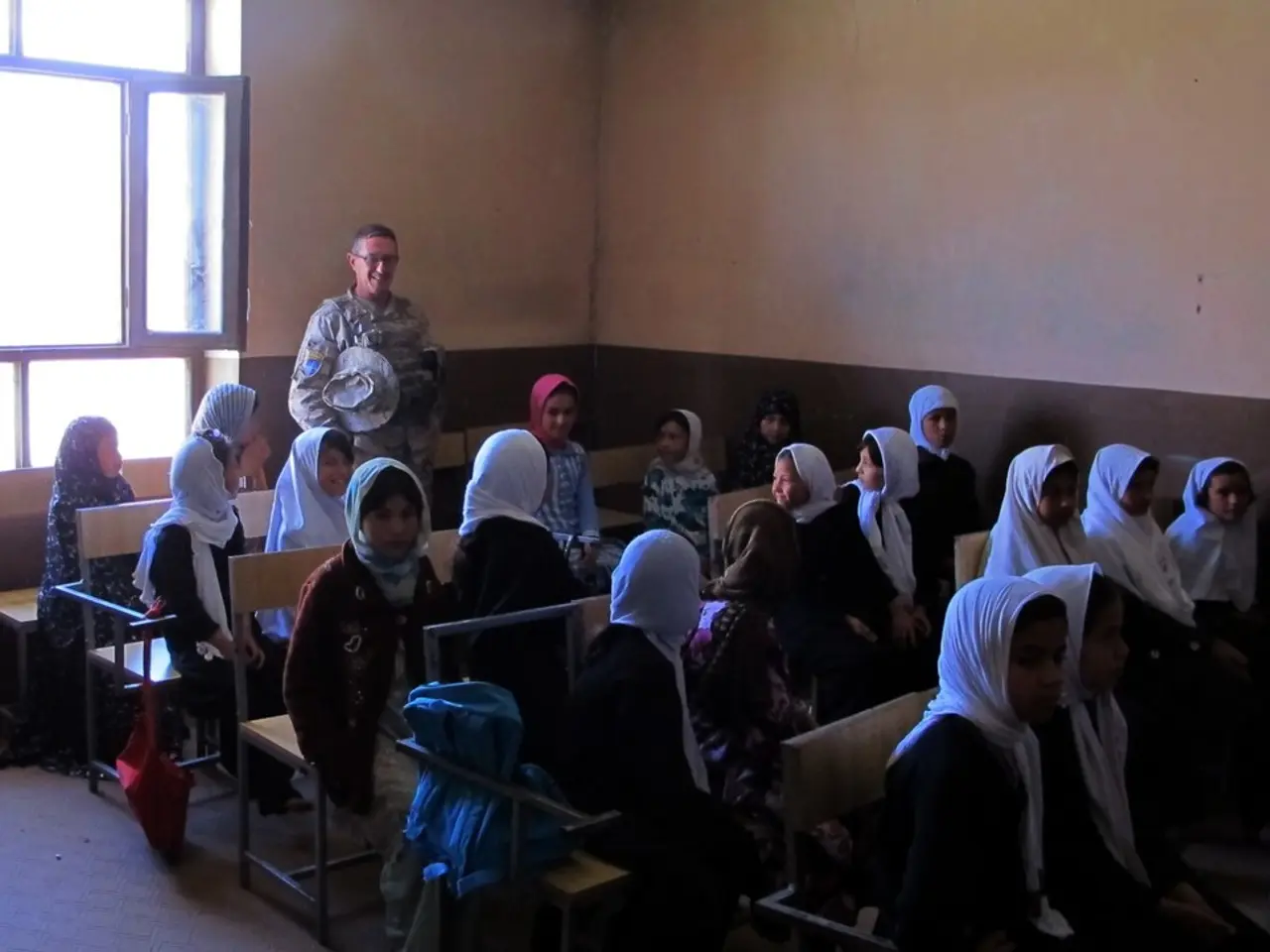The Superiority of the International Baccalaureate in Worldwide Education
In the ever-evolving landscape of education, the International Baccalaureate (IB) Diploma Programme stands out as a respected and holistic approach to learning. Today, over 5,000 schools in more than 150 countries offer IB programmes, catering to learners aged 3 to 19.
The IB offers a suite of four programmes, each designed to promote intellectual breadth and depth while providing balanced coverage across subjects. The IB Diploma, a two-year pre-university course for students aged 16-19, is particularly renowned for its rigorous university preparation and global recognition.
The IB Diploma Programme is more than just a curriculum; it is a mindset, appealing to curious and motivated students who want to learn about the world, challenge themselves academically, and stand out in university applications. The programme emphasizes inquiry-based learning, interdisciplinary and global approach, and the development of the IB Learner Profile qualities.
One of the key benefits of the IB Diploma Programme compared to Advanced Placement (AP) or A Levels is its global recognition and university reputation. The IB is recognized by leading universities worldwide and often seen as a rigorous, desirable credential, benefiting students applying internationally. Its consistent assessment standards provide a reliable way for admissions officers to evaluate students across countries, more so than some national exams like A Levels which are UK-centric.
The IB requires students to take six subjects across different disciplines, fostering interdisciplinary skills and broad academic exposure. This contrasts with A Levels, which emphasize specialization in fewer subjects, and AP, which allows flexible, individual course choices. The IB also includes core components—Theory of Knowledge (TOK), Extended Essay (EE), and Creativity, Activity, Service (CAS)—which develop critical thinking, research, time management, and personal development skills beyond content mastery.
The IB Diploma Programme effectively prepares students for tertiary education demands. Many IB graduates report feeling more confident and ready for university-level work than peers from other curricula. The programme's emphasis on academic skills like essay writing, independent research, and inquiry-based learning equips students with the tools necessary to excel in university and beyond.
However, the IB Diploma Programme presents challenges such as a heavy workload, limited subject flexibility, and potential resource inequities. Managing six subjects along with core requirements over two years can lead to burnout and intense pressure during assessments, which may be greater than in AP (which allows choosing fewer subjects) or A Levels (focused on fewer exam subjects). The required breadth may feel restrictive for students preferring focused specialization, whereas A Levels let students pick and concentrate on fewer subjects and AP lets students mix and match courses depending on interests. Not all schools offer certified IB instructors or resources, which can affect the quality and consistency of the IB experience compared to the more widely available AP or A Level programmes.
In summary, the IB offers a globally respected, broad, and skill-oriented education with strong university preparation. However, it demands a heavy workload and may limit specialization options, which students should weigh against the more flexible and often less intensive AP or A Level routes depending on their goals and context.
References:
[1] International Baccalaureate. (n.d.). IB Diploma Programme. Retrieved from www.ibo.org/programmes/diploma-programme
[2] The Choice. (2021, March 12). The International Baccalaureate (IB) Diploma Programme. Retrieved from www.thechoice.com/college/admissions/college-admissions-advice/articles/the-international-baccalaureate-ib-diploma-programme
[3] The Princeton Review. (n.d.). IB Diploma Programme. Retrieved from www.princetonreview.com/college/ib-diploma-programme
[4] The Economist. (2018, November 10). The International Baccalaureate is in a league of its own. Retrieved from www.economist.com/education/2018/11/10/the-international-baccalaureate-is-in-a-league-of-its-own
[5] The Guardian. (2019, June 28). A-levels or IB? How to decide which is best for your child. Retrieved from www.theguardian.com/education/2019/jun/28/a-levels-or-ib-how-to-decide-which-is-best-for-your-child
The International Baccalaureate Diploma Programme, with its emphasis on online education, learning, and education-and-self-development, provides a global recognition and university reputation that sets it apart from Advanced Placement (AP) or A Levels. Its rigorous university preparation and holistic approach, encompassing balanced coverage across subjects, interdisciplinary learning, critical thinking, and personal development skills, contributes significantly to a student's academic growth.




